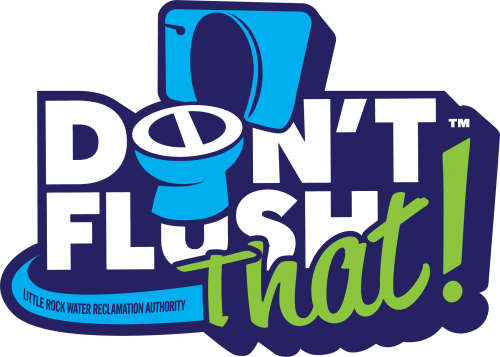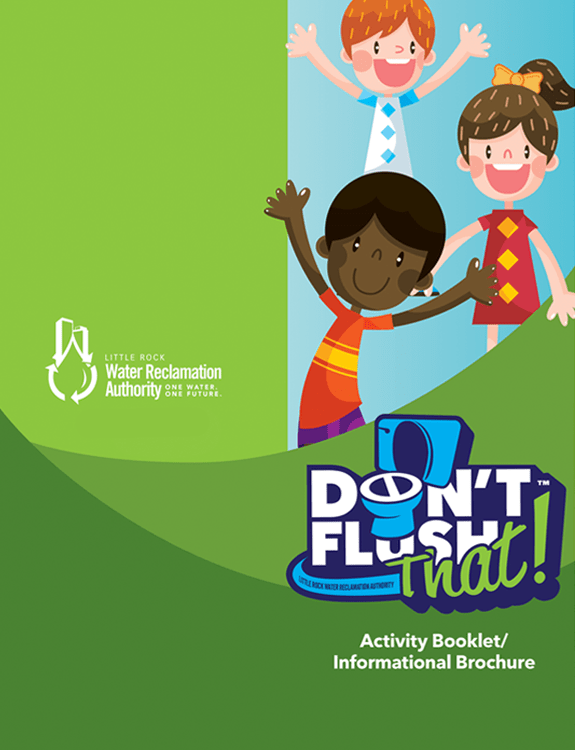Don't Flush That!
November 13, 2019 | Arkansas Today
Little Rock Water Reclamation Authority is committed to reclaiming and treating water to ensure it is safe to return to the environment. Many items are frequently flushed or poured down the drain and they harm our shared sewer system. When these 'Unflushables' enter our system, they affect all ratepayers, even those doing their part to maintain the system. Some items can be hazardous and may end up in our local waterways. These materials can also cause backups into your home, sewer releases into the environment, and can impact the cost of maintaining the system. You may be surprised by the items that can cause damage to not only your plumbing, but our environment.
It’s time to do your part to prevent clogs, backups, and other costly repairs that affect our shared system and your home. It’s simple –Remember to only flush the 3 Ps – Pee, Poop and Paper- toilet paper that is! Check out the ‘Unflushables’ below so the next time you see someone flushing these items you can remind them, “Don’t Flush That!”


Hey parents and teachers, be sure your little ones are able to identify what should and should not go down the drain! Download this activity so they can help Little Rock Water Reclamation Authority protect our sewer system, our environment and our One Water.
OTHER RESOURCES
Check out other ways you can do your part and remember to tell friends and family 'Don’t Flush That!' if it doesn't belong in our drains!
Learn more about Wastewater Treatment
Learn more about how you can help
Learn more about Wastewater Treatment Water Use

LRWRA understands that water is vital for the health and safety of communities and ensures a safe and clean process when water is disposed from homes, businesses and the streets.